Finding New Life Through Gardening
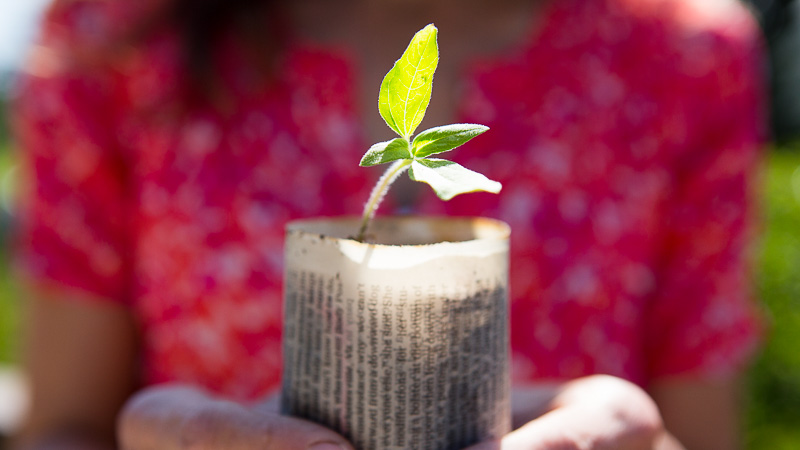

It’s no secret that gardening is good for us. Studies consistently show that tending a garden reduces stress and lowers risk of disease associated with aging. You may have also heard that cities with more trees have less crime or that simply being exposed to nature for a short period of time (15 to 30 minutes a day) improves focus and overall well being. Would it be a stretch to say we’re happier for time spent outside or even time spent gardening?
I like to think studies like these simply help us make sense of things we already know.
The yearning we all have for wildness, finding beauty in simplicity and growing — some of our own food, flowers, the things we love — runs deep within each of us. It’s a human condition we all share. As kids we take this for granted, it’s an inherent part of our DNA. When we tend a garden as adults we’re embarking on a practice of tending to ourselves, we get closer to all things green and alive, connecting us to our younger selves, our community as well as shaping a life that is rich and full.
Learning to See
Two words: green blurs. This is the state of seeing all plants as one giant mass of green.
I had a moment of fear when I was in college and studying botany for the first time. What if the careful examination of plants – breaking them down into their parts and pieces – took away some of their magic? Instead I found the exact opposite to be true. In learning to see plants for their sometimes subtle differences and individual characters, the habitats they prefer and the animals that come to visit them, made them more amazing. In the process, I found the door to a whole new world.
When growing a garden, you quickly come to find the plants you’re cultivating are not so different from people. They have personalities, quirky habits and uniquely identifiable characteristics such as fuzzy, soft-to-the-touch leaves with purple veins and a funny way of unfurling as they grow; fruits that are mature (and pollinated) inside out flowers (such as figs); scented leaves that ignite memories, provoke a sense of peace and culinary inspirations.
The Nature Connection is the Nurture Connection
Our gardens are often our most immediate and accessible connection to nature, even if it’s only an herb garden planted in a recycled wine box or containers dotting a windowsill. They’re mini-ecosytems filled with fragrance, texture, and, if left to flower, a mecca for bees and butterflies. (Rolly pollies and snails will find their way too.)
We need this. When your day is too busy for that 15 minute walk through the nearest open space, your box of herbs could be your next best medicine with the added benefit of easy, no-waste harvesting for daily cooking.
One of my most loved planting combinations is Thai basil, lemon verbena, pineapple sage, thyme and blue basil. Somehow they all manage to fit and thrive in a single wine box (13 x 20 x 7 inches).
Related post: Lemon Verbena: An Herb with a Twist
Garden Making
Move soil, plant a seed and instantly, boom, you’re in it — a driver in your personal food web. You’ll be surprised how good it feels to step back and have the privilege to say, “I grew that.” It doesn’t have to be all your own food, just the things that matter most and the things you love. In fact starting small is good because it means you might actually stick with it.
Related post: 10 Tips for Starting a Garden
When I was young, visits to my grandparents farm in Sonoma were punctuated with carrots. There were rows and rows of them growing in loose, sandy soil. I would brush a little soil aside at the base of the greens to get a visual of what lay underneath. Once satisfied, it was unearthed in a instant, run under the spigot, and eaten on the spot. I’m still amazed at how many carrots it took for me to tire of this activity before moving on to fort building under the hedge (and now I marvel that my skin wasn’t glowing orange by the time we headed home).
This is when I learned what carrots are supposed to taste like and that gardens are as much about play as they are about work. In fact, there’s something perfectly bare about it (this place in the garden where work and play meet) as if it’s life stripped down. For me, this is when creativity creeps in and I have a deep sense of clarity, the world makes sense and new ideas come. It’s also when I’m ageless. I’m the child I was then and the me I am now, all wrapped up together.
Garden making is part play, part work and a whole bunch of creativity combined with love. It’s a heartening dose of medicine where nature, food, making and growing collide. What I love, is that doesn’t take much to jump in with both feet and, through it all, a whole new world comes alive — connecting you and me and our communities.
Grow What You Love.
xo Emily
“When we try to pick out anything by itself, we find it hitched to everything else in the Universe.” – John Muir
Related post: Grow What You Love & Pass it On
Related post: Nature is Good for You: Crayfish & Skipping Stones
Related post: 10 Tips to Conquer Your Fear of Gardening
Listen
Buy The Book
Special offers
Newsletter Signup
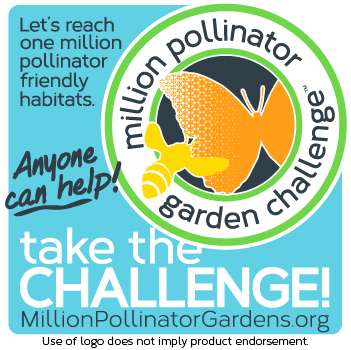
Archives
Disclosure
Pass The Pistil is a participant in the Amazon Services LLC Associates Program and other affiliate programs such as Etsy, affiliate advertising programs designed to provide a means for sites to earn fees by advertising and linking to curated affiliate sites.

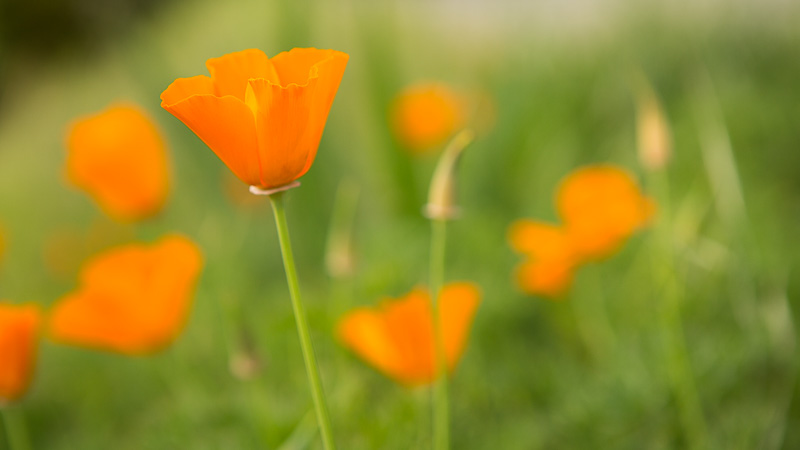
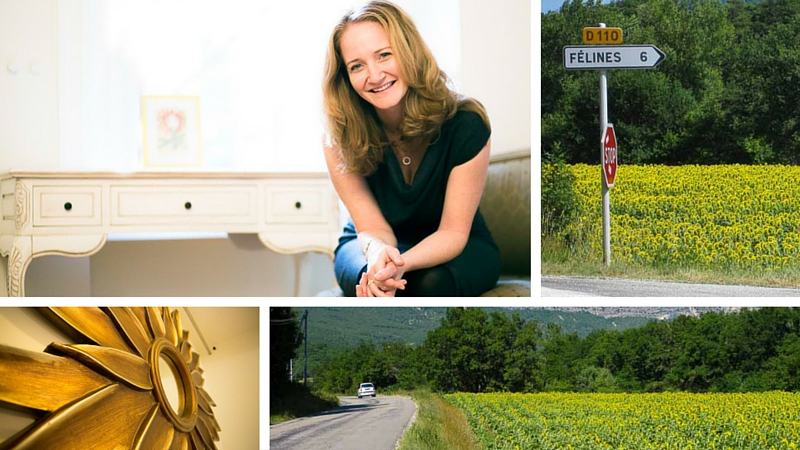
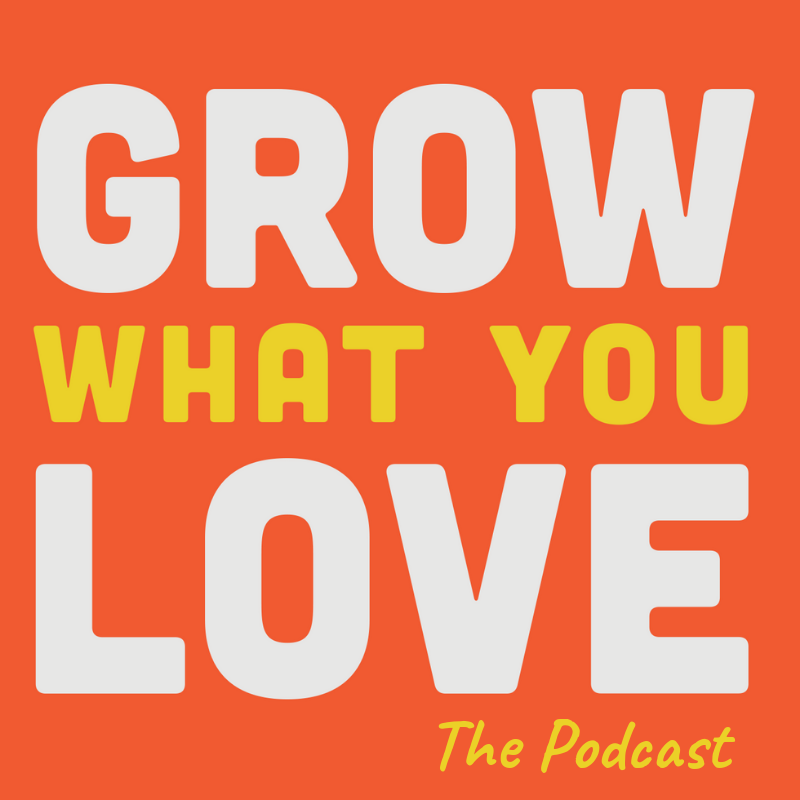





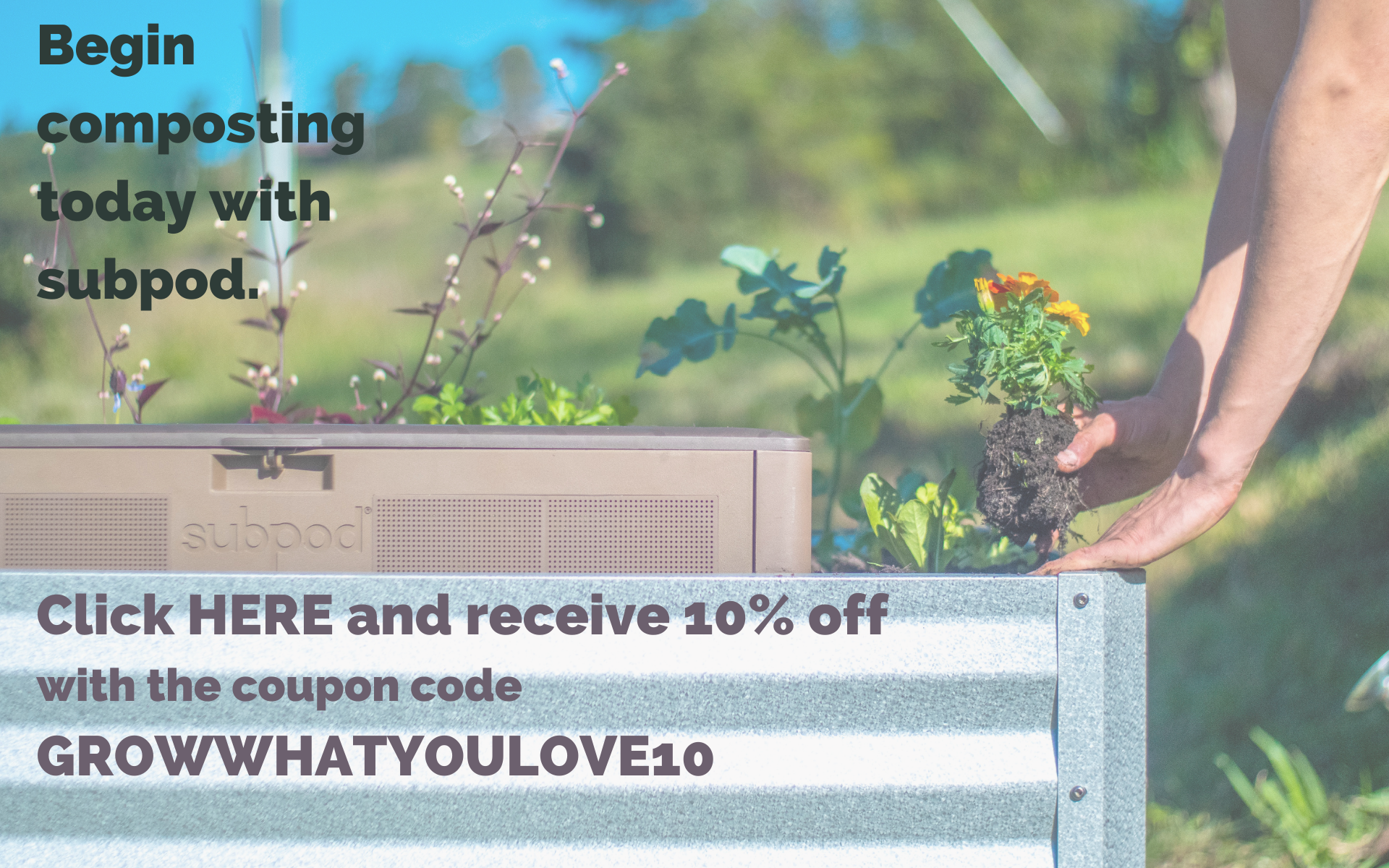
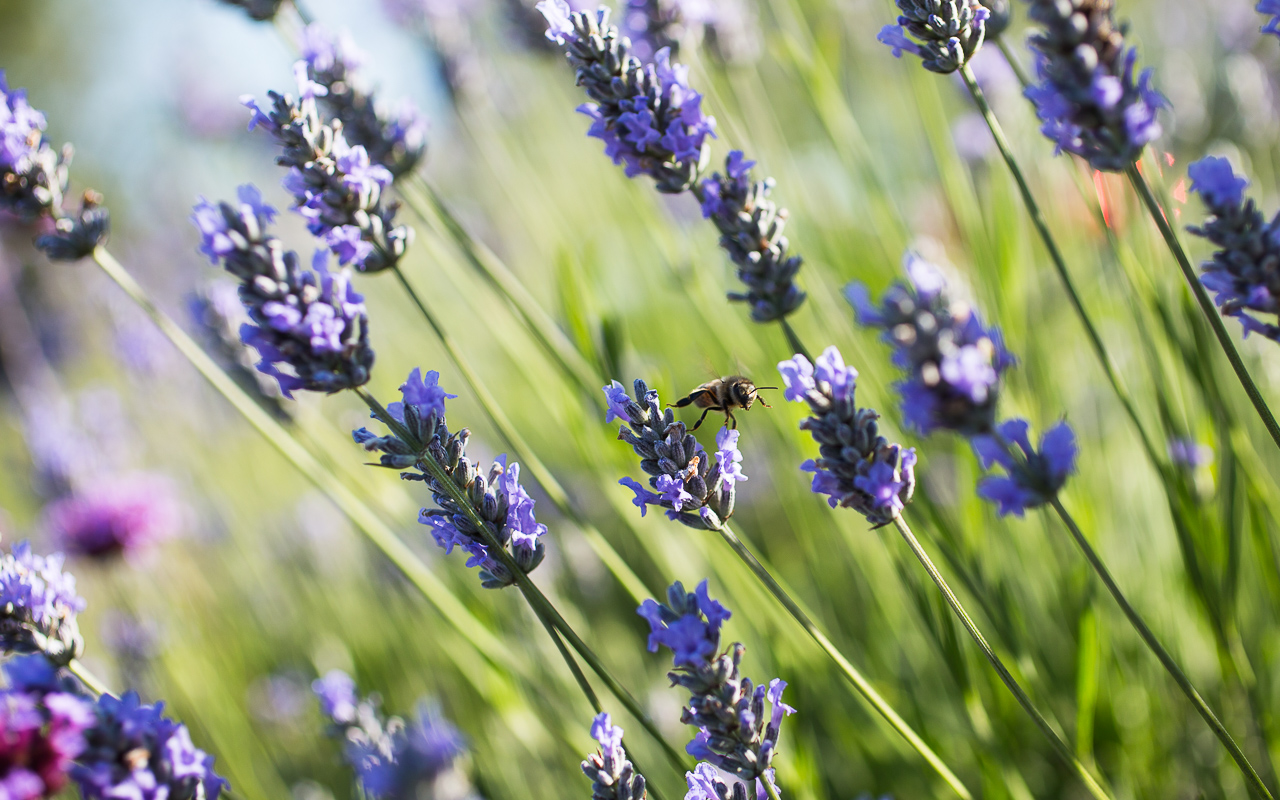
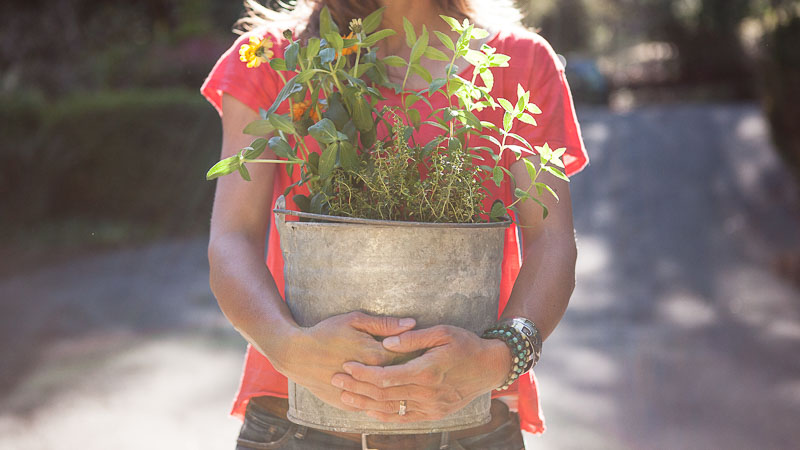
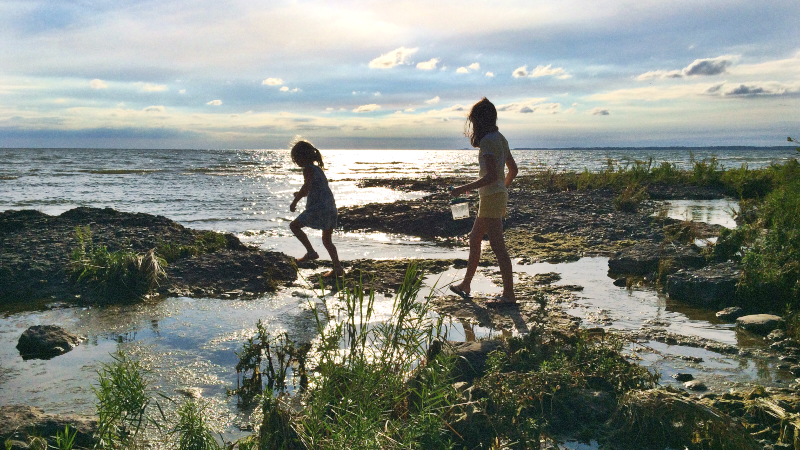
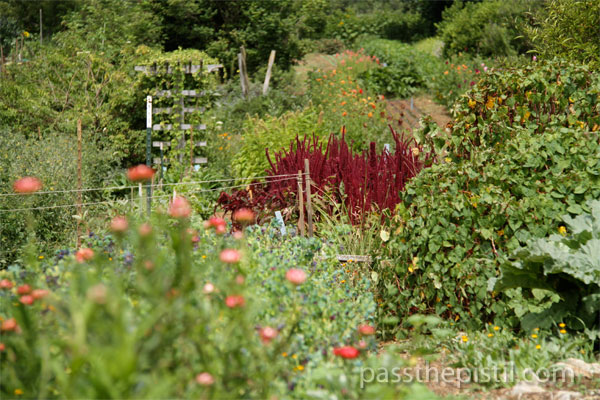
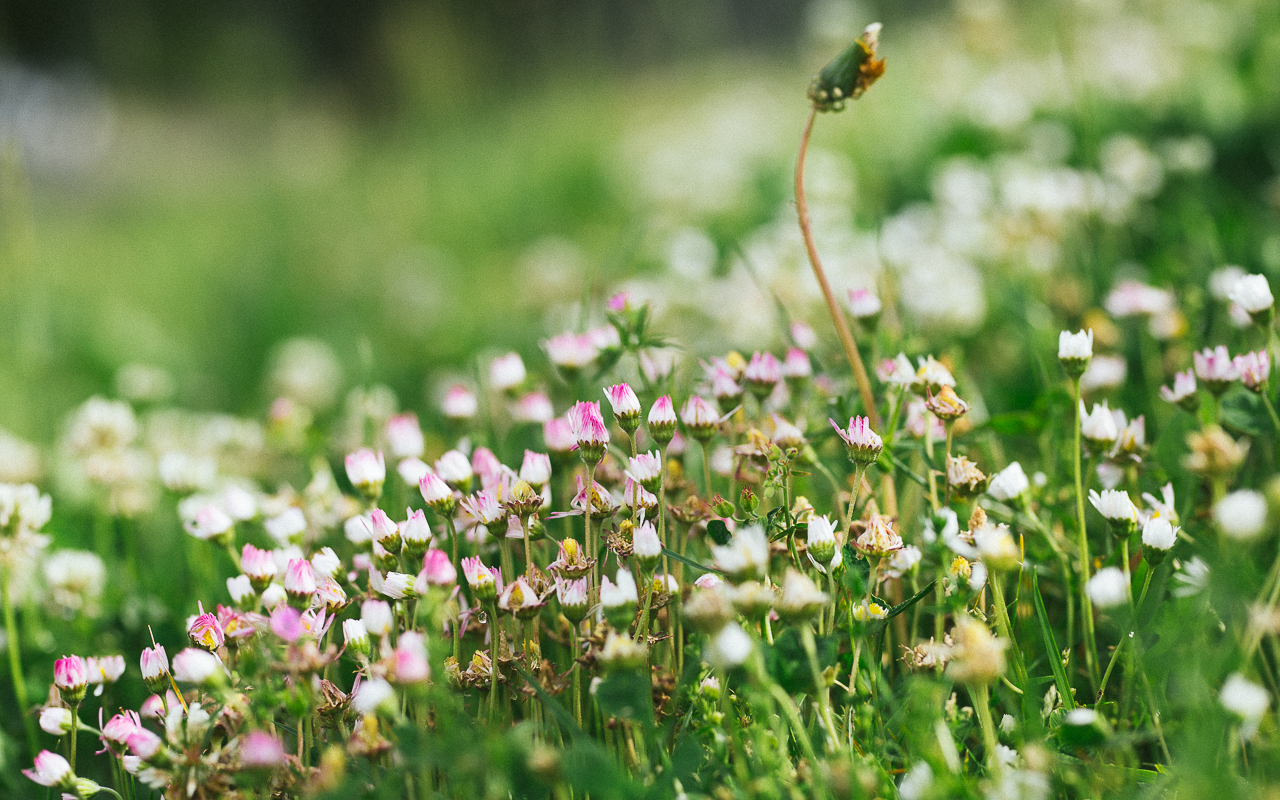
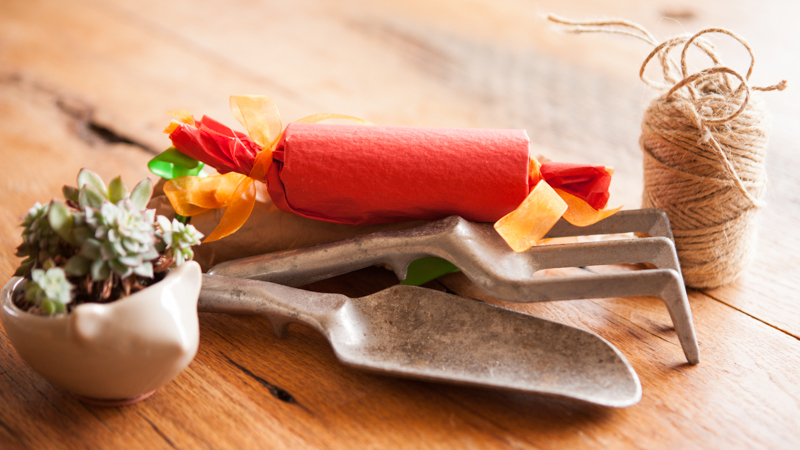
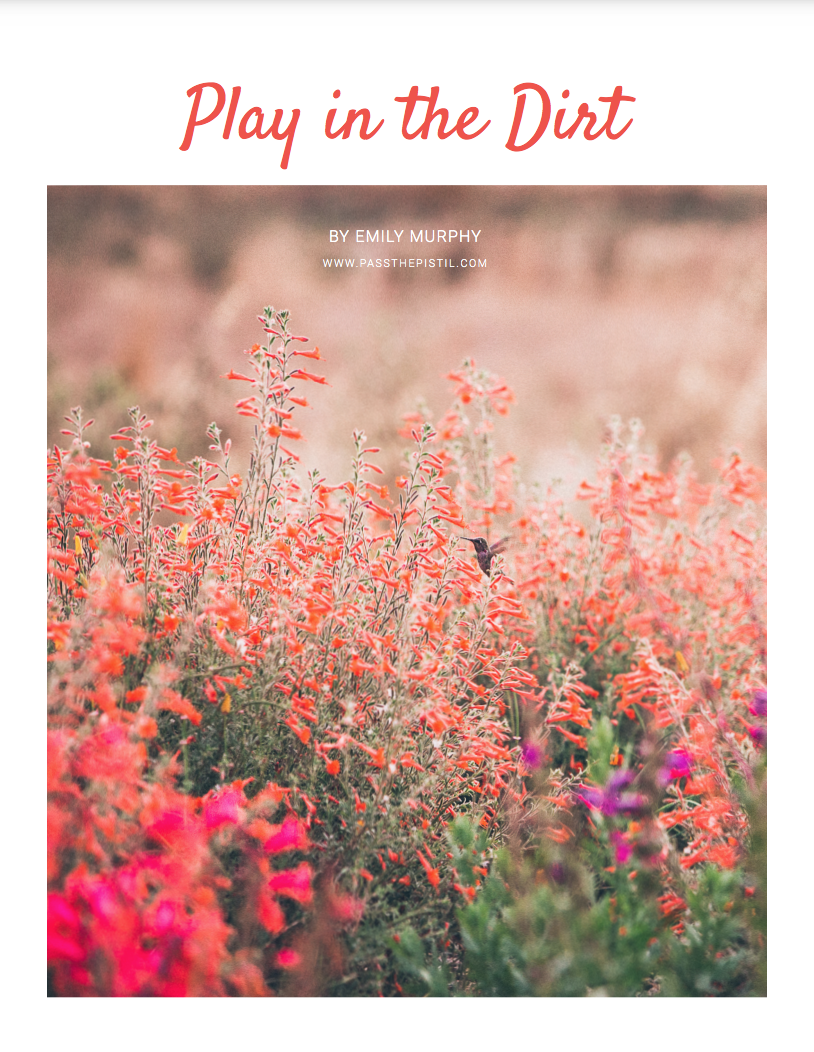
I so agree with you. My garden is where I can get lost in the motions of digging and snipping and when I’m really feeling it, hacking and shaping and pulling and turning my space into a dream.
Thanks, Jennifer. And perfectly said…. I was trying to get there without sounding too “out there”. xo